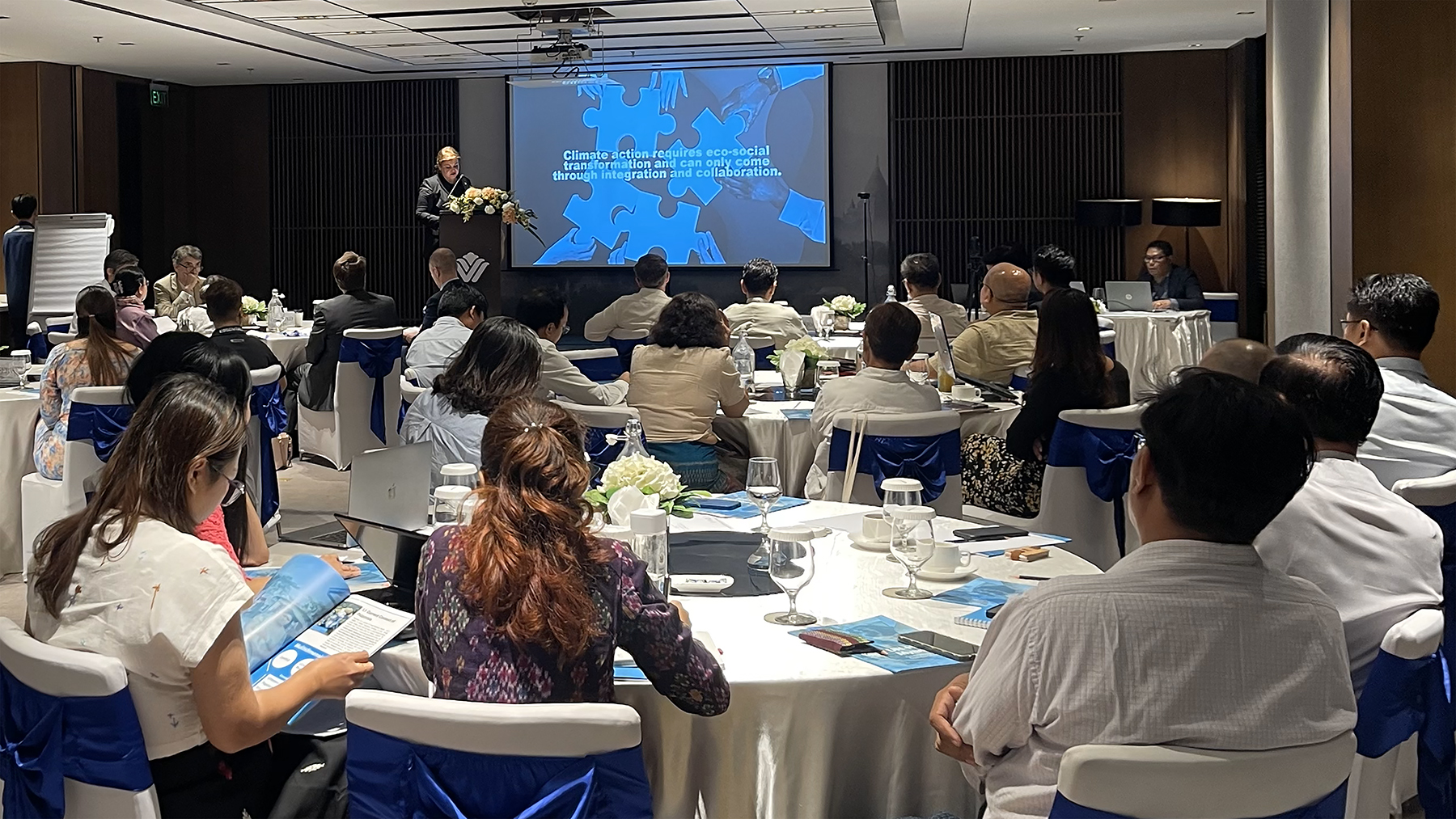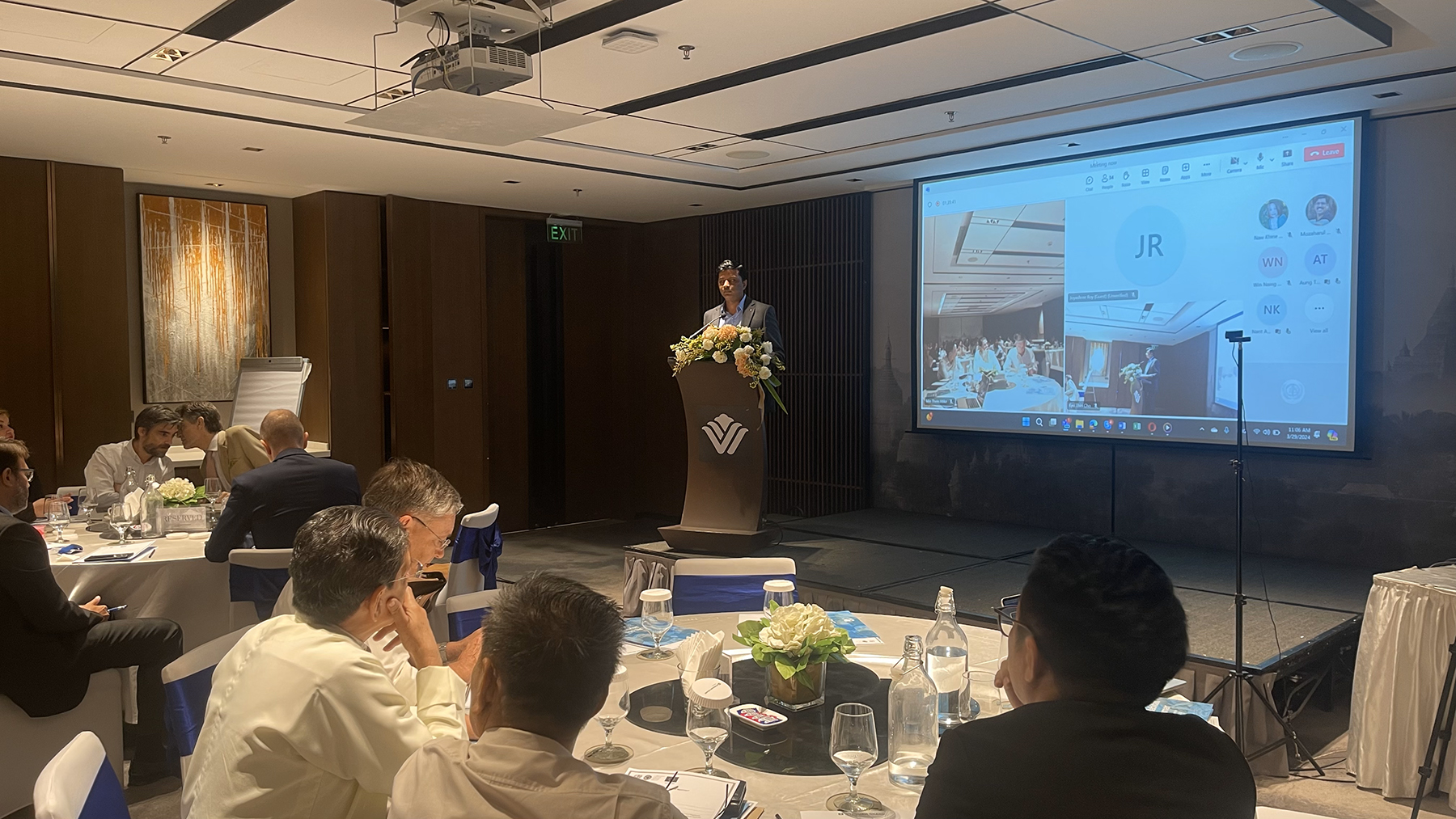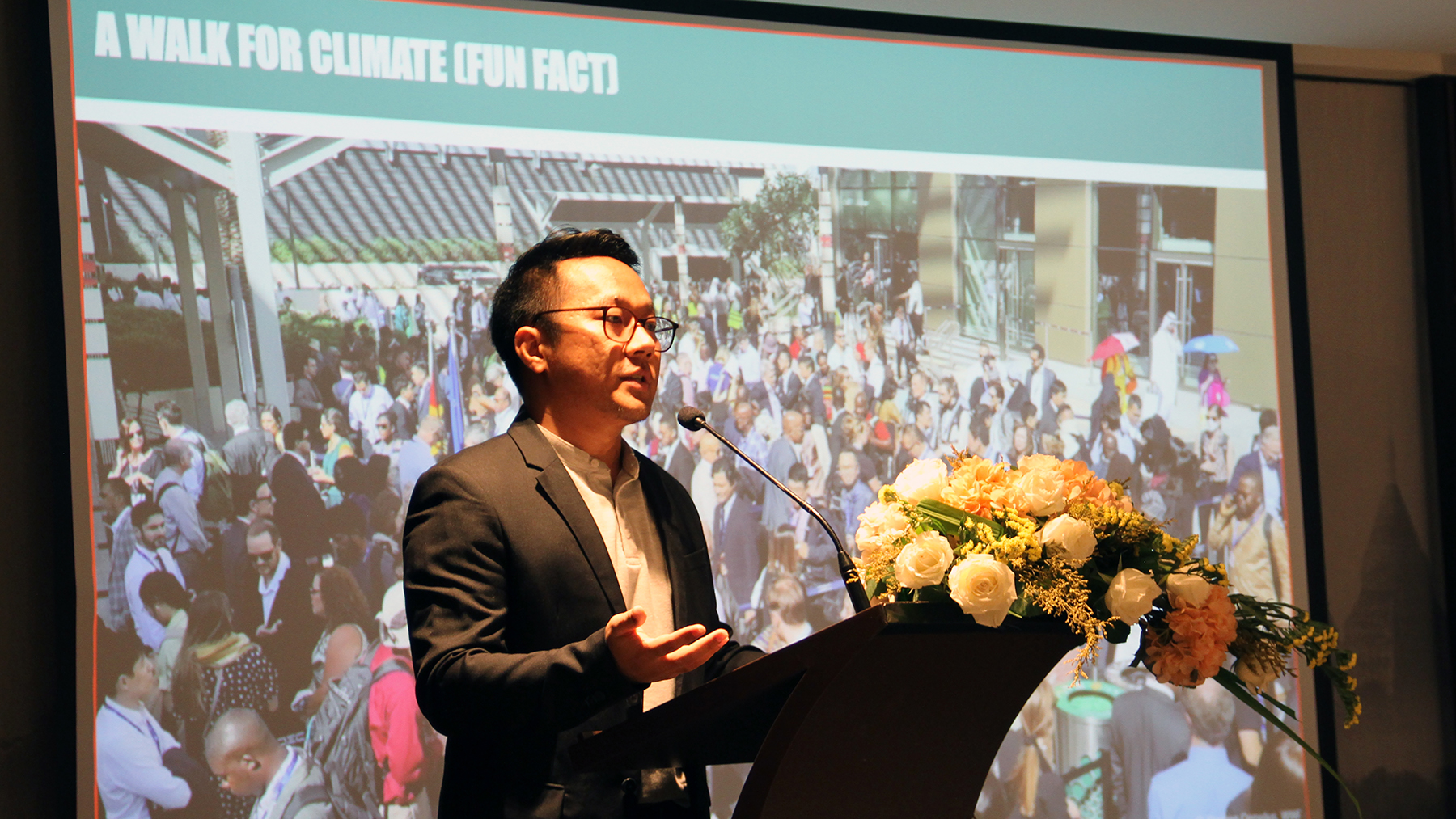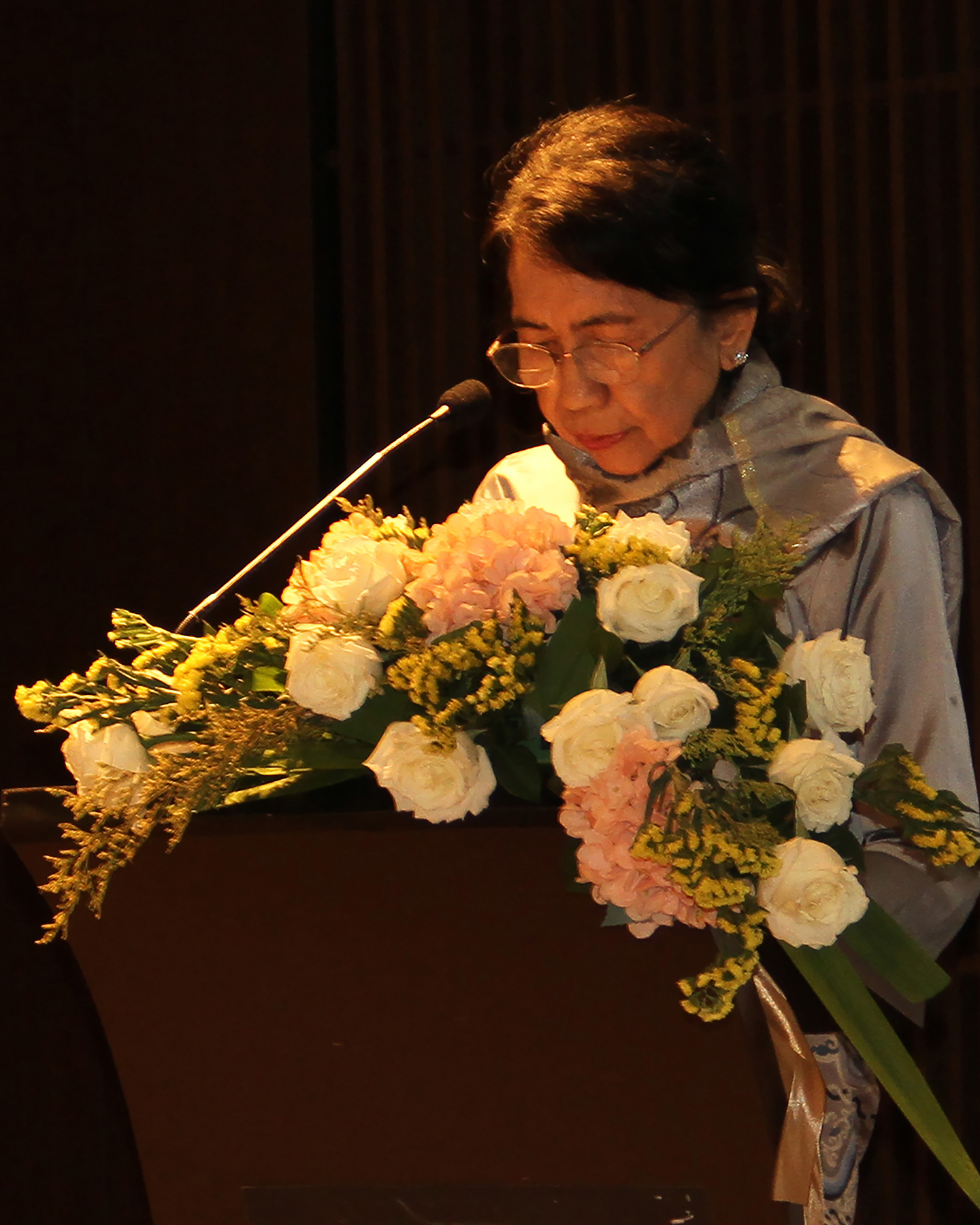COP28 Debriefing and ‘What does it mean to Myanmar?’
A hybrid COP28 debriefing and ‘What does it mean to Myanmar?’ was held on March 29, 2024, in Yangon, with the aim of discussing a comprehensive summary of the main results, agreements, and conversations that took place during COP28 in Dubai in 2023 and its implications for Myanmar. The event was organised by UN-Habitat as part of the Myanmar Climate Change Alliance Programme (MCCA) activities, funded by the European Union. More than 80 individuals attended the event in person, while an additional 40 participants joined virtually. The attendees represented a diverse range of climate actors and stakeholders, including development partners, the private sector, financing institutions, UN agencies, NGOs, CSOs, universities and institutions, and youth representatives.
“Climate change is a pressing issue, and the gap between ambition and action is widening. COP28 emphasized the need for a swift transition from fossil fuels to renewables,” said Mr. Patrick Sandoval Nichols, Deputy Head of Delegation, Head of Political, Press, and Information Section, European Union Delegation to Myanmar. He continued, “While the EU and its member states played a key role in securing commitments and establishing a loss and damage fund, we recognize the immense need for further financial and technological support for vulnerable nations.”
The session started with a video collecting local voices from the Hilly Region in Myanmar. Local communities are affected by climate change in sectors like agriculture and seeking climate knowledge so they may take more informed decisions.
Ms. Catarina Camarinhas, UN-Habitat Country Programme Manager a.i., introduced the Myanmar Climate Change Alliance (MCCA) Programme, saying that “empowering communities involves raising awareness, supporting local action plans, and exchanging knowledge on climate analysis.” She highlighted the programme’s efforts to improve climate dialogue, and the importance of considering how Myanmar may better position itself in global discussions, benefiting from new mechanisms for technical support and knowledge sharing. Under the MCCA Programme, UN-Habitat recently established the Myanmar Climate Action Network (M-CAN), as a platform for knowledge exchange and collective climate action.
Following the presentation on UN-Habitat’s MCCA programme, three experts delved into the outcomes of COP28 and how this may affect Myanmar. The presentations were followed by a discussion moderated by Mr. Shashank Mishra of UN-Habitat Myanmar, focused on the “future of collective climate action in conflict-affected Myanmar following COP28 outcomes.” He highlighted Myanmar’s vulnerability to climate change despite its low emissions. He emphasised the need for increased investment in developing countries like Myanmar to adapt to climate change and achieve sustainable development goals. “Despite existing solutions, we must allocate more financial resources to these countries to bridge the investment gap.”, he said.
The expert presenters gave a brief overview of COP28 outcomes:
Prof. Joyashree Roy, Bangabandhu Chair Professor, Asian Institute of Technology, discussed key takeaways from the IPCC report, highlighting opportunities for climate action that promote development. She stressed reducing disparities in energy use and explored how focusing on decreasing energy demand could significantly lessen the pressure to decarbonize on the supply side. Highlighting numerous cost-effective solutions attainable by 2030, Prof. Roy emphasized the interconnected benefits between climate action and achieving sustainable development goals. She acknowledged the need for increased investment, especially in developing countries.
Mr. Mozaharul Alam, Climate Change Programme Regional Coordinator, UN Environment, provided a comprehensive overview of the key outcomes and initiatives from COP28, as below.
Loss and Damage Fund:
- Established on the first day of COP28, a historic first.
- $800 million was pledged initially.
- 26-member board to oversee the fund with legal personality and immunity.
- The World Bank is to be the intermediary for four years, with specific conditions for independence.
- An interim secretariat is established until a permanent one is set up.
Santiago Network:
- UN Office for Disaster Risk Reduction (UNDRR) and UNOPS were chosen to host.
- Collaboration with the Caribbean Development Bank is encouraged.
- Secretariat to be located in Geneva, Switzerland.
Global Stocktake:
- The first-ever global stocktake was conducted.
- Calls for deep and rapid greenhouse gas reductions.
- Emphasis on renewable energy, energy efficiency, and phasing out coal power.
- Aims for tripling global renewable energy capacity and doubling average energy efficiency by 2030.
- adaptation plans and implementation progress by 2025 and 2030, respectively.
Other Key Decisions:
- Framework agreed for achieving the Global Goal on Adaptation.
- Pledges were made for adaptation funding.
- Decisions on “just transition” pathways for a workforce shift.
- Request to update the definition of climate finance.
“In Myanmar, we need strong collaboration among climate actors. There’s a funding gap, particularly for loss and damage. We need to work together to move forward. M-CAN, a network of over 57 organisations and 56 individual experts in Myanmar, is addressing these challenges. M-CAN organises a successful climate week in Myanmar every year. This year, we expect to have a more intensive dialogue among climate actors to address climate change issues,” said Mr. Hang Dal, Head of Climate and Energy, WWF-Myanmar, and M-CAN Co-Chair.
In her closing remarks, Dr. Swe Swe Aye, Chair of Myanmar Green Building Society, emphasized the critical role of architects and engineers in designing sustainable buildings to reduce greenhouse gases from the built environment. While nature-based solutions provide further ways to combat climate change, the Myanmar Green Building Society is actively promoting green building practices domestically. Their work drafting a green building chapter for the National Building Code is a significant step towards reducing the environmental impact of Myanmar’s built environment.
The COP28 debriefing session in Yangon offered insights on how the international community may respond to the growing challenges affecting local communities in Myanmar. Participants committed to pursue collaboration in the context of climate change in Myanmar and considering the heightened severe community needs, in the current political and socioeconomic context. M-CAN members, with technical support from UN-Habitat, will continue to work on a position paper with a view to contributing to the 29th UN Climate Change Conference.





